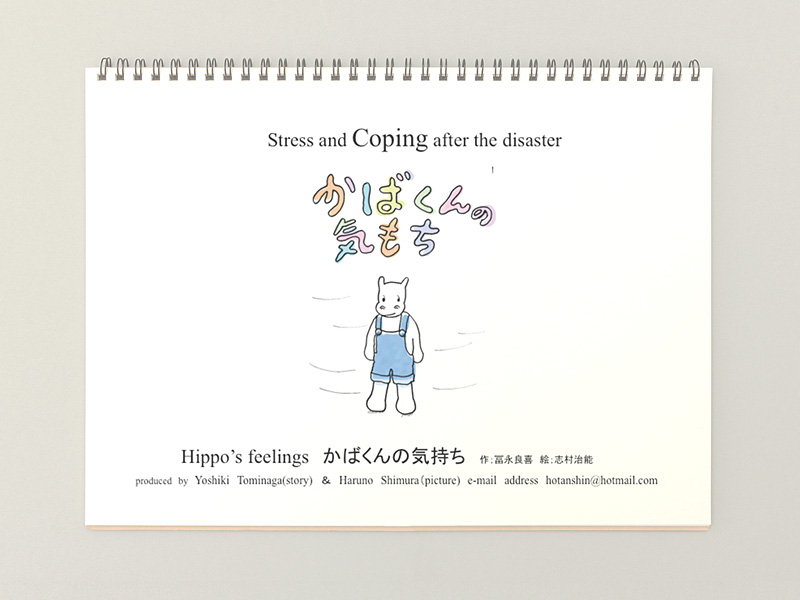Detecting and preventing depression prior to diagnosis
Depression is at times referred to as “the mental cold” because of its pervasiveness and no one is immune from it. Contrary to such common impression, however, depression can be dangerous and have serious consequences. In recent years in Japan, depression has gained attention as a critical factor of suicide. According to Shizuka Kawamoto, whose research focuses on depression, the number of patients with depression (including bipolar and mood disorders) exceeds one million (Ministry of Health, Labour and Welfare, Patient Survey, 2014). In addition, of all the suicides with an identified cause or motive as stemming from health issues, more than 40%, or 4,496 cases in 2016, had depression as its cause (Ministry of Health, Labour, and Welfare, Suicide Statistics, 2016).

Graph: Ministry of Health, Labour and Welfare, Patient Survey, published in December 2015. Created from http://www.mhlw.go.jp/toukei/saikin/hw/kanja/14/
Kawamoto’s research focuses on the prevention of depression of particularly those in their late adolescence, based on the perspective that “preventing depression is an important aspect of suicide prevention.” She is particularly interested in determining where the boundary between health and disease lies. “The sense of being down or not being able to sleep because of anxiety are all depressive symptoms that we have experienced. Therefore, what is the difference between what is called a disease and what is not?” This question set off Kawamoto’s research.
The question of at what threshold should depression be diagnosed is referred to as the continuity controversy of depression. Although many studies on the subject have been conducted, no clear answers have been obtained to this date. Researchers of continuity hypothesis have argued that there is no definitive boundary between the depressed and the healthy state, and pointed out that healthy people possess characteristics similar to that of people with depression. According to Kawamoto, “an analogue depression group comprises those who have depressive symptoms but have not yet been diagnosed at a specialized institution.” Kawamoto compared patients with depression to ‘analogue’ subjects (i.e., male and female university students) to determine their resembling and differing characteristics.

First, to determine the severity of the subject’s state of depression, Kawamoto asked her subjects to respond to a 21-item multiple-choice self-report inventory called the Beck Depression Inventory-II, or BCI-II for short. “As a result, we found that among those in the analogue group, there is a gradation (a continuous sequence); there is also no definitive border between healthy subjects and those in the analogue group and between those in the analogue group and patients with severe depression,” Kawamoto explained. Even among subjects in the analogue group, there are those with depressive symptoms but who remain in the range of healthy people, whereas others have characteristics that are close to that of patients with depression. To scrutinize further the differences between them, Kawamoto examined each of the BDI-II items to determine how each of the symptoms manifests. “One of the items that showed a clear difference was those related to suicidal ideation,” Kawamoto revealed. The more severe their case is, the higher this item was rated, indicating an abnormal level of depressive symptoms. In addition, statistically significant differences were found in the items related to loss of interest, loss of vitality, difficulty in concentration, changes in sleeping habits, and changes in appetite. “These are conditions that interfere with daily life, especially when one is involved in studies and work. As among the diagnostic criteria of depression is to determine whether the condition impairs social and occupational functions, these findings indicated that not because one may be in the analogue group, their depression can be taken lightly,” Kawamoto stated. She added, “it would be good if such findings lead to early detection and prevention of depression.”
However, Kawamoto found that an early detection of depression does not necessarily result in a visit to a psychiatrist or a neurologist. “In Japan, reports have pointed out the low examination rate of those who experienced depression; only about 30% of them have visited a medical institution for consultation.” With university students as subjects, Kawamoto investigated the factors that influence one’s decision to seek medical treatment, and found the following four factors: an expectation that the passage of time will naturally lead to recovery, the inconvenience of going for a professional consultation or seeking advice from others, the difficulty in making an association with the disease, and a sense of resistance to psychiatric institutions.
The Japanese government has begun taking countermeasures to address this situation. Although there have been activities to disseminate knowledge and increase awareness of depression, as well as depression screenings, with the intent of early detection and early treatment at the local community level, no noticeable impact has been observed. Kawamoto pointed out that “it is possible that such mental health literacy aimed at the masses may not be reaching those who really need the information.” Kawamoto, now, turns her attention to the individuals, hoping to create opportunities for each to have a dialogue with specialists, so that they obtain the kind of information that they find useful. Her next research aims to examine whether conversations could make a difference in mental health literacy and eliminate prejudices that surround psychiatry.
“I would like to be able to provide options and possibilities that would be helpful when one becomes mentally and emotionally weighed down.” This is why Kawamoto continues to be active in the field of clinical psychology and carries her research forward.

- Shizuka Kawamoto
- Senior Researcher
- Research Subject: community support for depression and suicide prevention, psychological education for improving mental health literacy, health communication between professionals and non-professionals
Research Keywords: social psychology, clinical psychology

































